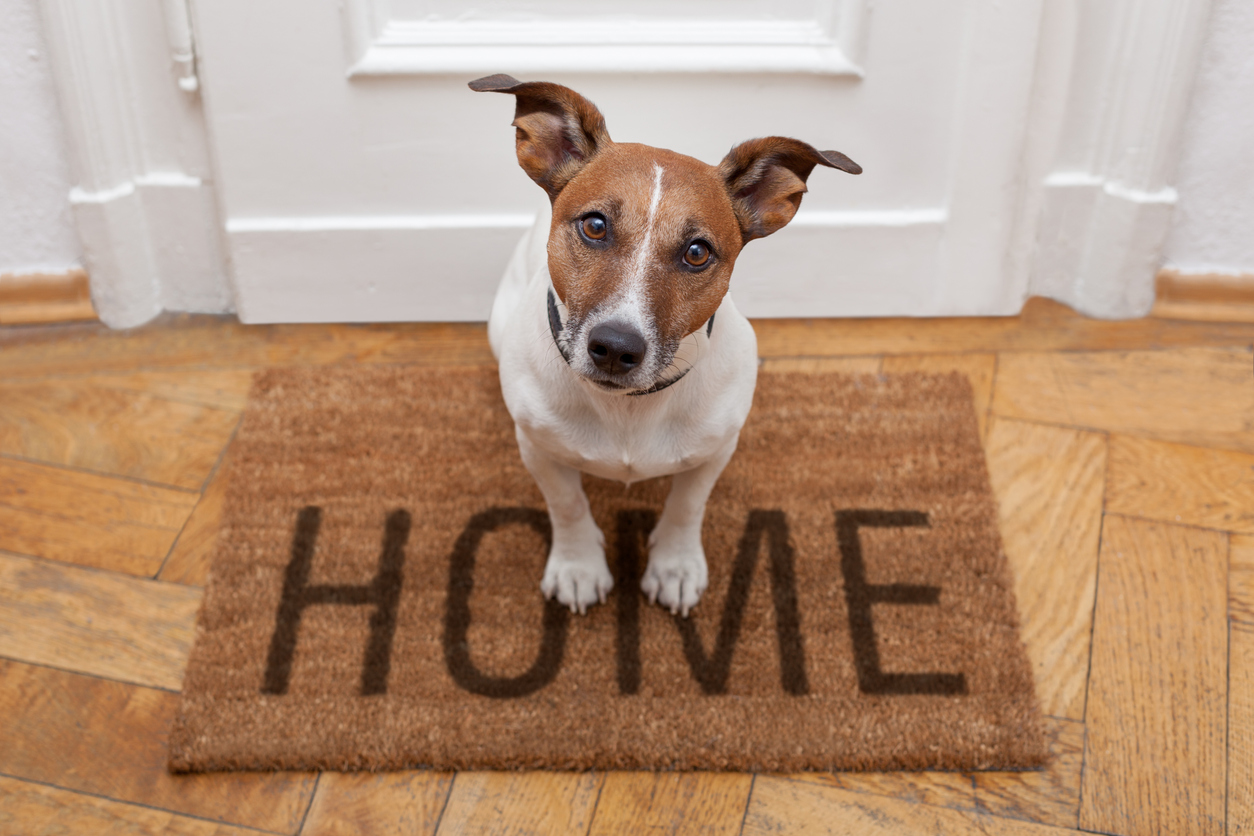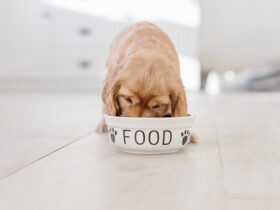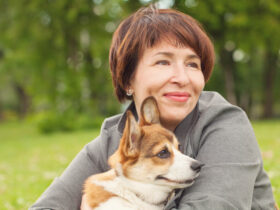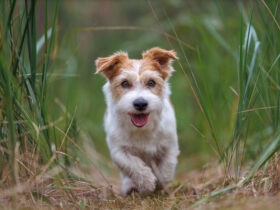Between daytime naps and nighttime snooze sessions, dogs tend to sleep a lot more than their dutiful pet parents. Keep reading to learn more about how much sleep your dog needs, why it’s important, and how you can help them get the rest they deserve.
How Many Hours Do Dogs Sleep in a Day?
The answer can vary from one canine to another, but comparative studies show that dogs get an average of 10.1 hours of sleep per day. To put that into perspective, the average adult sleeps less than seven hours each night.
While 10.1 hours is the average, some dogs don’t need as much sleep and others may snooze for upwards of 20 hours in a day. A typical amount of sleep for your canine companion can depend on a variety of factors.
Age
Your dog’s sleep needs will change over the course of their life. Puppies require more sleep to help them develop, while senior dogs require more rest to maintain their energy. In general, you can expect your furry friend to need the following amount of beauty rest depending on their age.
- Puppies: 18-20 hours
- Adult Dogs: 8-12 hours
- Senior Dogs: 18-20 hours
Size and activity
Different breeds have different sleep needs. Bigger dogs need more sleep since they require more energy to function throughout the day – a similar reason to why large breeds have special dietary needs. Smaller dogs also need more rest than average-size dogs. Below are typical sleep ranges for the different breeds.
- Small breed: 12-14 hours
- Medium breed: 8-12 hours
- Large breed: 16-18 hours
While size is one factor, your dog’s activity level can affect these averages. Certain breeds are simply more energetic than others. For example, a typical French Bulldog isn’t going to run around as much as a Jack Russell Terrier. They may both be small breed dogs, but the Jack Russell Terrier will normally need more sleep to recharge.
Health
Your dog’s health can play a factor in whether they get enough sleep. Some health issues can cause discomfort and make it harder for your dog to relax, while others can interrupt quality sleep when they are able to settle down. These issues include:
Job
Routines can also have an unexpected impact on your dog’s sleep cycle. There are a few occasions where your dog will adjust their sleep habits because they’ve been bred to perform a specific job.
One of the most notable examples of this is how Alaskan Malamutes and other sled dogs may sleep less than 12 hours per day to accommodate a competitive racing schedule. Common watchdogs like German Shepherds can also be lighter sleepers so that they can wake up and be ready for an intruder.
Why Do Dogs Sleep So Much?
There is a very good reason dogs spend so much time asleep – it’s incredibly important for their wellbeing.
- It allows your dog to regain the energy they used between naps.
- It improves their mood.
- It supports brain development.
- It bolsters their immune system.
- It helps their ability to learn.
While people and dogs both need sleep to thrive, dogs have different sleeping patterns. Dogs reach rapid eye movement sleep (also known as REM or “deep sleep”) less often than people. Dogs spend only 10% of their sleep in REM as opposed to 25% for humans, making more rest important for our furry friends.
Another reason dogs sleep more often is because they don’t have the same responsibilities that their pet parents do. Most dogs can sleep whenever their body says it’s time for rest, giving them more freedom to nap when needed.
Signs Your Dog isn’t Sleeping Enough
While dogs are known for their love of snoozing, they don’t always get enough sleep. There are a variety of reasons why your dog might not sleep enough, including stress, health issues, or changes in their environment or routine. The following red flags can help indicate that your dog is overtired.
- Lethargy: A decrease in energy levels can leave your dog less interested in playtime and less active than normal.
- Irritability: Like people, dogs can get grumpy when they don’t get enough sleep. An overtired dog may display notable mood swings and become agitated more easily.
- Excessive napping: If your dog suddenly wants to sleep a lot more during the day, they may not be getting enough sleep at night. Watch out for sudden shifts in their napping routine.
- Restlessness: Just because your dog is laying down doesn’t mean they’re getting enough sleep. Keep an eye on your dog to see if they frequently wake up, pace around at night, or do something else that interrupts their sleep.
There are also sleeping behaviors that may seem worrisome at first but are normally fine. It’s completely natural for your dog to start twitching or running in their sleep – this behavior is often an indication that they are dreaming and typically only lasts for a short period
How to Help My Dog Sleep Better
Every dog deserves to get a good night’s sleep and there are steps that you can take to help your dog get the rest they need.
Establish a routine
It’s hard to get enough sleep when you don’t have a regular schedule, whether you’re a person or a dog. Our furry friends are naturally creatures of habit, and changes in their routine can stress them out and cause them to sleep less. Try to limit any major changes in their lives and aim to keep a regular schedule for eating, playtime, and bedtime.
Give them a good place to sleep
It’s easier to help your dog establish a good sleep schedule if they have a comfortable spot to snooze. Their go-to sleeping spot can differ based on you or your dog – a dog bed, dog crate, and even your bed can all be viable options. Just make sure where they sleep is comfortable and gives them a space without disruption.
Keep them active
The more energy your dog uses, the more rest they’ll need to recover that energy. A typical dog needs about 30 to 60 minutes of exercise each day, and there are a variety of ways that you can keep them active.
Maintain a healthy diet
A healthy diet also plays a significant role in your dog’s overall wellbeing and can help support quality sleep. Over or underfeeding your dog can lead to them feeling sluggish and food sensitivities can cause discomfort that disrupts their rest. Feeding your dog a high-quality, slow-cooked food like Bil-Jac dry dog food can help your dog get the nutrition they need to support a happy tummy and restful night.
Want to learn more about how you can support your furry friend before, during, and after nap time? Sign Up for the Best Friends Club for more educational articles, special tips, and members-only discounts on Bil-Jac treats and other products.







Leave a Reply